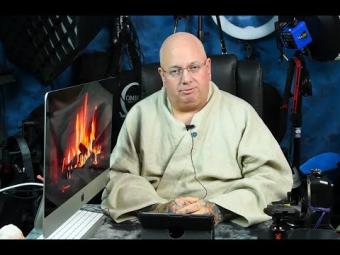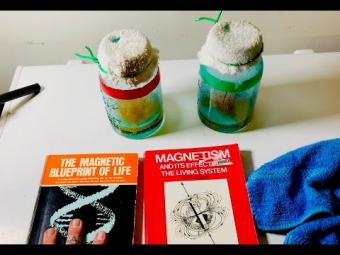Original Buddhism in Gotama's own words. Or, there is no Pali term for buddhism, monk etc.
"my teachings are (to be called) Brahmayana (path to the Absolute/Brahman)" SN 5.5
This video is an introduction to what 'buddhism' was in the eyes and words of Gotama; namely that there is NO Pali term for "buddhism" , nor for "monk/nun", and that Gotama called his followers Brahmins and himself a Vedagu (expert/sage in the Vedas).
"I have NOT taught a new path followers, only discovered a long lost path (and reclaimed it)"- Udana
"It is a heresy to say (of myself, Gotama) that I have taught a new teaching, a new path, something novel" - Digha1
The single most philosophically important passage in all buddhist doctrine [MN 1.436]:-
"Whatever form, feelings, perceptions, experiences, or consciousness there is (the five aggregates), these he sees to be without permanence, as suffering, as ill, as a plague, a boil, a sting, a pain, an affliction, as foreign, as otherness, as empty (suññato), as Selfless (anattato). So he turns his mind/will/spirit (citta, Non-aggregate) away from these; therein he gathers his citta (nous/spirit/mind) within the realm of Immortality (amataya dhatuya). This is tranquility; this is that which is the most excellent!" [MN 1.436]
It is of course true that the Buddha denied the existence of the mere empirical "self" in the very meaning of "my-self" (this person so-and-so, namo-rupa, an-atta), one might say in accordance with the command 'denegat seipsum, [Mark VII.34]; but this is not what our writers (above) mean to say, or are understood by their readers to say; what they mean to say is that the Buddha denied the immortal (amata), the unborn (ajata) and Supreme-Self (mahatta') of the Upanishads. And that is palpably false, for he frequently speaks of this Self, or Spirit (mahapurisha), and nowhere more clearly than in the too often repeated formula 'na me so atta', "This/these are not my Soul" (na me so atta'= anatta/anatman), excluding body (rupa) and the components of empirical consciousness (vinnana/ nama), a statement to which the words of Sankhara are perculiary apposite, "Whenever we deny something unreal, is it in reference to something real"[Br. Sutra III.2.22]. It was not for the Buddha but for the nihilist (natthika) to deny the Soul! "Nihilists (natthiko) [those who deny the Soul] go to terrible hell"[SN 1.96].
This video is an introduction to what 'buddhism' was in the eyes and words of Gotama; namely that there is NO Pali term for "buddhism" , nor for "monk/nun", and that Gotama called his followers Brahmins and himself a Vedagu (expert/sage in the Vedas).
"I have NOT taught a new path followers, only discovered a long lost path (and reclaimed it)"- Udana
"It is a heresy to say (of myself, Gotama) that I have taught a new teaching, a new path, something novel" - Digha1
The single most philosophically important passage in all buddhist doctrine [MN 1.436]:-
"Whatever form, feelings, perceptions, experiences, or consciousness there is (the five aggregates), these he sees to be without permanence, as suffering, as ill, as a plague, a boil, a sting, a pain, an affliction, as foreign, as otherness, as empty (suññato), as Selfless (anattato). So he turns his mind/will/spirit (citta, Non-aggregate) away from these; therein he gathers his citta (nous/spirit/mind) within the realm of Immortality (amataya dhatuya). This is tranquility; this is that which is the most excellent!" [MN 1.436]
It is of course true that the Buddha denied the existence of the mere empirical "self" in the very meaning of "my-self" (this person so-and-so, namo-rupa, an-atta), one might say in accordance with the command 'denegat seipsum, [Mark VII.34]; but this is not what our writers (above) mean to say, or are understood by their readers to say; what they mean to say is that the Buddha denied the immortal (amata), the unborn (ajata) and Supreme-Self (mahatta') of the Upanishads. And that is palpably false, for he frequently speaks of this Self, or Spirit (mahapurisha), and nowhere more clearly than in the too often repeated formula 'na me so atta', "This/these are not my Soul" (na me so atta'= anatta/anatman), excluding body (rupa) and the components of empirical consciousness (vinnana/ nama), a statement to which the words of Sankhara are perculiary apposite, "Whenever we deny something unreal, is it in reference to something real"[Br. Sutra III.2.22]. It was not for the Buddha but for the nihilist (natthika) to deny the Soul! "Nihilists (natthiko) [those who deny the Soul] go to terrible hell"[SN 1.96].






















YORUMLAR